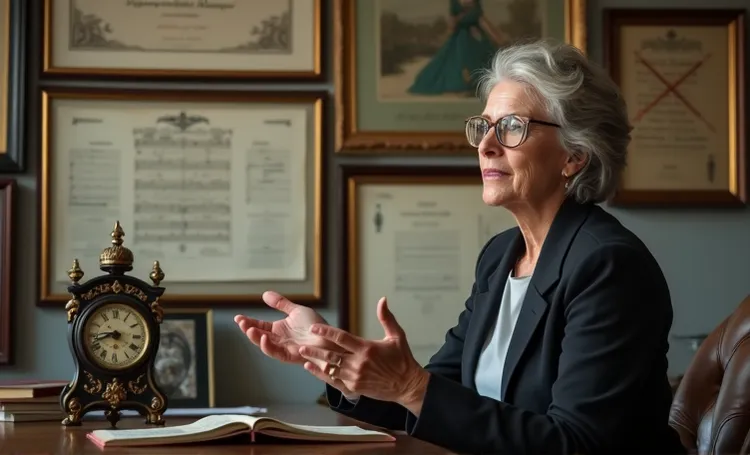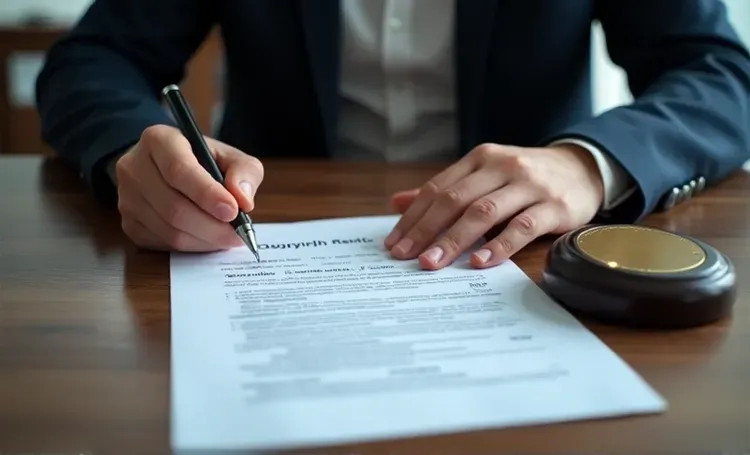🛡️ How to Protect Intellectual Property in 2024
What should you do to protect your copyright and avoid unpleasant litigation? The issue of intellectual property registration is more important than ever, especially with the growth of digital technologies and global platforms. Regardless of whether you create computer programs, music, paintings or architectural designs, the process of copyright registration helps protect your creativity from plagiarism and turns it into a source of passive income. How to effectively claim your intellectual property rights? What methods work in Europe and the USA? In this post, we will consider the main methods of registration, what objects can be worked with, and what documents must be provided.
🌐 For more detailed information on intellectual property protection, visit the World Intellectual Property Organization (WIPO) website.
🎨 What objects are subject to copyright protection?
Before registering intellectual property, it is important to make sure that your object can actually be protected. According to international standards, copyrights can be registered for the following categories:
- Written works: books, manuscripts, poems, song lyrics.
- Oral works: public speeches, songs, theatrical plays.
- Works of art: paintings, drawings, architectural projects.
- Three-dimensional objects: sculptures, building models.
- Audio and video recordings: musical compositions, recordings of theatrical performances.
- Inventions and know-how.
- Software: computer programs and applications.
❗ Exceptions
It is important to remember that not all objects can be protected by copyright. For example, ideas, state symbols and documents, and public domain objects are not subject to protection. Copyright for these objects lasts for the life of the author and for 50 years after his death, which makes this process important for the long-term protection of your work and the creation of additional sources of income.
📜 International Law on Intellectual Property
The protection of intellectual property rights is regulated by many international documents. Here are the key ones:
- The Berne Convention (1886) is the main document regulating copyright in written works.
- The World Intellectual Property Organization Convention (WIPO, 1967) regulates a wide range of issues related to the protection of intellectual property at the global level.
- The Brussels Convention (1974) regulates aspects of intellectual property protection in the digital space.
🎯 Basic laws and regulations
The process of registering copyright internationally requires providing evidence of ownership of the intellectual property. This may include:
- digital or handwritten copies of the work;
- personal data of the author;
- documents confirming the fact of disclosure of the object.
📝 Copyright Registration: Step-by-Step Process
How to register copyright for your work? Here are some steps to help avoid plagiarism issues and protect your intellectual property:
| Stage | Description of the process | Price | Result |
|---|---|---|---|
| Submitting an application | The author fills out an application to the authorized body (WIPO, European Copyright Agency) | Up to $1000 | Official confirmation of authorship |
| Confirmation of the original source | Digital or physical evidence of authorship is required. | – | Copyright protection |
| Payment of duty | State authorities set the amount of the fee depending on the type of object. | Up to $2000 | Issuance of a certificate or patent |
📌 Documents to submit
When applying for copyright registration, the author must provide:
- Statement of rights to the object;
- A digital or handwritten copy of the work;
- Personal data, pseudonym;
- Receipt of payment of the fee.
💡 Please note: government agencies do not verify the authorship of an object, so in the event of a dispute, you will have to go to court to protect your rights.
🔄 Alternative methods of copyright registration
Don't want to waste time on complicated paperwork? There are several alternative ways to protect your rights:
- Online registration: Specialized Internet platforms allow you to register copyright online. The author sends a copy of the work, pays a fee, and receives a certificate confirming authorship.
- Self-defense: You can mail a copy of your work to yourself and keep the receipt. If necessary, this envelope can be opened in court to prove the date of creation of the work.
- Blockchain: Using blockchain technology to register copyrights is becoming increasingly popular. This technology allows the creation date of a work to be recorded, making it useful for creative people.
| Method | Advantages | Flaws |
|---|---|---|
| Online registration | Fast and convenient | Questions about legal validity may arise in court |
| Self-defense | Minimum costs | Proof required in court |
| Blockchain | Technological innovation and high precision | Legal recognition varies by country |
📅 Copyright Period
Copyright lasts for the life of the author and 50 years after his death. However, protection may vary depending on the country and region.
⁉️🤔 Popular questions and answers
- Is it possible to protect an idea or concept?
No, ideas and concepts are not protected by copyright. Only specific works or expressions of ideas are protected.
- What documents are needed to register copyright?
You will need an application, a copy of the work and a receipt for payment of the state fee.
- How can I protect my rights if I don’t want to contact government agencies?
You can use alternative methods such as sending yourself a letter with the work or using blockchain technology.
- Do you need a lawyer to register copyright?
A lawyer is not required, but his assistance can facilitate the process and prevent possible mistakes.
- Is it possible to register copyright on software?
Yes, registering software as copyrighted material is standard practice.
- What should I do if my rights have been violated?
You can go to court to recover compensation. The amount of compensation varies, but can be as much as $5 million.
- Can I register the rights to a work abroad?
Yes, there are international organizations such as WIPO that help register copyrights on a global level.
- What to do if the work was created in collaboration?
All co-authors have equal rights to the work, and the rights must be registered to all participants.
💎 Results and conclusions
Protecting your intellectual property is not only a way to prevent your ideas from being stolen, but also an opportunity to turn your creativity into a source of income. Regardless of which method you choose – traditional or innovative, copyright registration plays a key role in protecting your interests. It is important to remember that copyright is not just a formality, but a tool that allows creative people to maintain control over their work.

